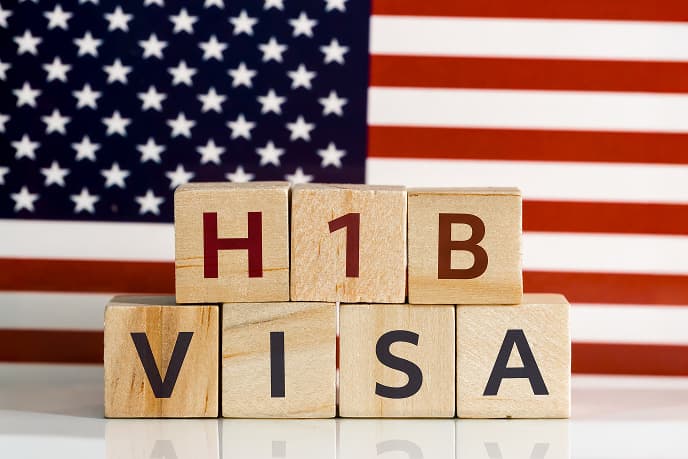A U.S. government shutdown that began on October 1, 2025 has sent shockwaves through the global tech-talent pipeline. The pause has particularly disrupted the processing of the H‑1B visa system as the U.S. Department of Labor (DOL) suspended certain approvals due to funding lapses. For Indian tech professionals and U.S. employers relying on foreign-skill hires, the uncertainty is immediate. The issue is trending as social media lights up with concerns, immigration attorneys issue alerts and companies scramble for contingency plans. With no clear end in sight, the ripple effects are already being felt across careers, hiring and investment.
Background & Context
Government shutdowns in the U.S. occur when Congress fails to approve funding and federal agencies must curtail non-essential operations. The current shutdown followed the expiration of the appropriations bill, triggering partial agency closures and furloughs.
The H-1B programme—popular among Indian tech professionals—requires a multi-step process: employers must first secure a Labour Condition Application (LCA) via the DOL before the U.S. Citizenship and Immigration Services (USCIS) can accept the H-1B petition. When the DOL’s processing halts, the pipeline backs up.
Public attention rose as news outlets flagged that Indian nationals—who account for over 70% of H-1B visa recipients—are likely to see the disruption most acutely.
Key Facts / What Happened
On October 1, 2025 the funding lapse triggered the shutdown, and the DOL suspended new submissions for LCAs and prevailing wage determinations.
Without certified LCAs, employers cannot proceed with H-1B filings, status changes or transfers for many foreign-skilled workers.
Meanwhile, USCIS remains fee-funded and technically continues to accept certain petitions, but the bottleneck at the DOL means many filings simply cannot start.
Murthy Law Firm | U.S Immigration Law
The U.S. Embassy & Consulates in India clarified that scheduled visa and passport services “will continue as the situation permits,” though warning of potential delays.
Voices & Perspectives
Immigration attorney Nicole Gunara told NDTV that companies whose LCAs were not certified before the shutdown cannot file new H-1B petitions until the DOL reopens.
Another legal commentary by the Murthy Law Firm notes that USCIS may excuse late filings if the delay is directly tied to the shutdown—calling it an “extraordinary circumstance.”
Murthy Law Firm | U.S Immigration Law
Indian IT recruiters are sounding alarms about recruitment freezes and “out-migration of talent back home” if the uncertainty drags on. Analysts highlight that this could slow hiring and impact revenue in India’s tech and services export economy.
Implications
For individual professionals: Those in process stand to face delays or status limbo, especially if their LCA was not certified pre-shutdown. Employer transfers, start dates and job launches may stall.
For companies: U.S. firms that count on H-1B talent may face hiring freezes, project delays and competition for domestic talent. Outsourcing firms in India or with U.S. clients may need to adapt.
For the broader industry: The disruption could alter global talent flows, accelerate remote/near-shore models, and intensify calls for U.S. immigration reform. Indian tech hubs may see increased ‘stay-put’ decisions rather than moving workers abroad.
For governments and diplomacy: India-U.S. immigration and bilateral talent frameworks may come under fresh scrutiny as thousands of Indian nationals are affected.
What’s Next / Future Outlook
As the shutdown drags on, stakeholders will watch for:
The timing of congressional funding resolution and agency reopening.
DOL’s “catch-up” timeline: the backlog of LCAs could take months to clear.
Potential policy changes: The U.S. government has concurrently floated major H-1B reforms (e.g., higher fees, lottery changes) that could compound the uncertainty.
Employer strategy responses: Increased use of offshore/remote talent, adjustments in hiring timelines, and perhaps lobbying efforts for exemptions.
Individual professional action: Applicants may look into alternative visa categories, remote work arrangements, or revisiting career plans.
Wrap-Up
The U.S. government shutdown may sound like a distant policy drama—but for thousands of international workers, tech companies and India’s services industry, it’s now a real and ticking disruption. Whether you’re a software engineer awaiting an H-1B start date or an employer planning next-year’s workforce, the ripple effects will matter. Keep an eye on next week’s funding votes, but in the meantime, this pause is a reminder: when governments freeze, talent pipelines don’t wait.
